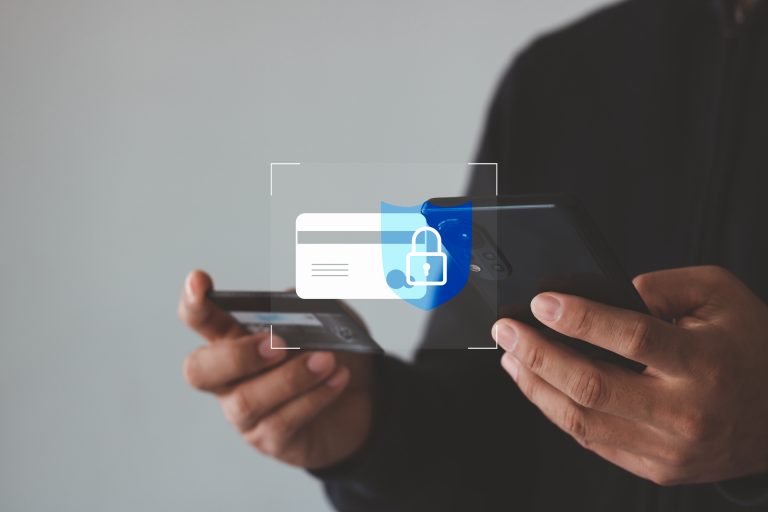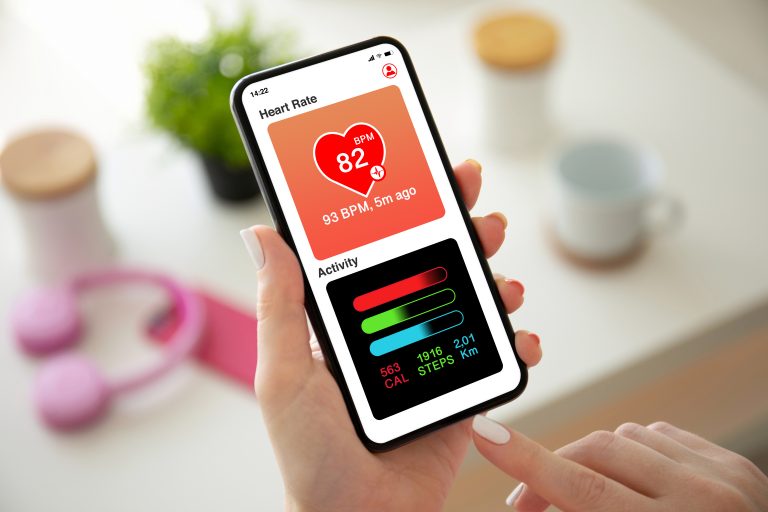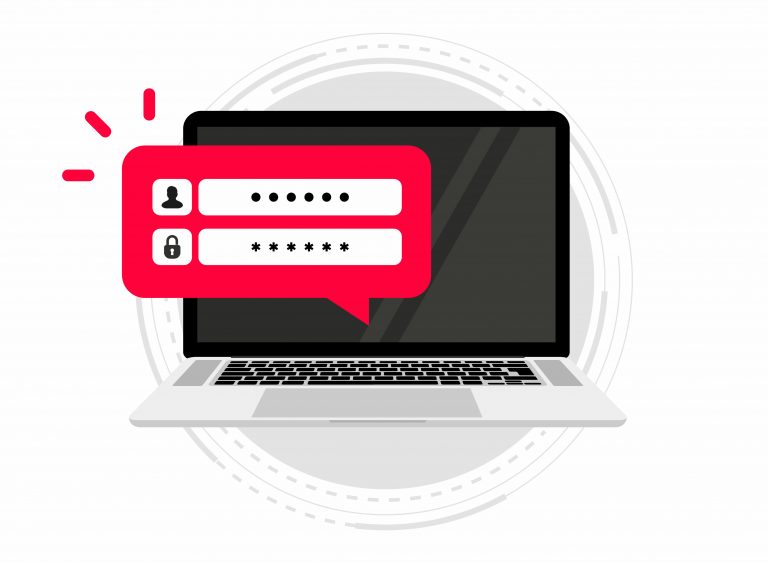Biometric Identification in Banking: The Future of Secure Transactions
January 30, 2024In an age where digital security is of utmost importance, biometric identification has emerged as a pioneering technology in the…

Should personal data be deleted from the web? How can you erase personal data once and for all? Our guide provides insights into protecting your digital privacy.
It is very easy to access the personal data of someone online these days. While this could come in handy at some point, it also means that others can easily access your information as well.
This reality may not sit well with you, but the good thing is that data brokers, for example, and other sites give you the option to submit a removal request to have different data categories of yours deleted.
However, on the side of the information broker or similar service provider, the question is when personal data should be erased. Should a data broker process every erasure request?
To understand this better, it’s important to understand what personal data really is, what the law has to say about data privacy, and when service providers should delete personal data.
It is easy to informally conclude what personal data is and isn’t. To standardize things, however, there is actually a legal and lawful basis that you can look into and refer to.
The GDPR (General Data Protection Regulation) states that personal data refers to any type of information that is related to an identified natural person or data subject.
Simply stated, personal data is any kind of information that is related to a person’s identification. It may include a name, location information, ID number, a specific online identifier, or any factors that pertain to that person’s social, cultural, economic, mental, genetic, physiological, or physical condition.
Personal data is sometimes referred to as “personally-identifying information” or PII. Such data can be commonly found on the web, even if specific laws forbid it.
That being said, several data types actually count as personal data. As long as this information helps in describing and identifying a person (data subject), it is considered personal data.
Even if the US does not have a single data protection law that Americans can refer to, several other related laws could still serve as a legal basis, especially regarding online data privacy.
The GDPR, for one, has international coverage of those who offer services and businesses online to an EU market. While the GDPR automatically applies to those who are part of the European Union, its scope may also cover non-European entities when any of the following criteria are met.
Those who do serious business online are well familiar with the GDPR. It is actually considered the world’s toughest privacy and security law. Considering this, it is worth it to know what the GDPR has to say about data protection.
Before digging into the rights mentioned in the GDPR, let’s look into how processing works, what a data controller is, what data processing is, and how processors and controllers work in tandem.
The GDPR defines a controller as a legal person, agency with a supervisory authority, public offices, or other entity that, whether alone or with others, decides the purpose and the method of processing an individual’s data.
As its name suggests, a data controller basically controls what personal data is used for and how it is processed.
While the GDPR does not concretely define what this processing is, you can infer it from its definition of a processor. The law defines a processor as the person, public agency, rightful authority, or other entity that does the processing instead of the controller. These processors do not own or control the data; they simply process it.
While data controllers determine the purpose and means of processing information, processors are the ones who process the data in the way that was determined by the controller.
Knowing this is necessary to understand what the GDPR says about data protection and what a data subject can rightfully do.
The GDPR has an in-depth compilation of various rights and articles about data regulations. Among these are some that should be stressed when it comes to personal data protection. For one, it is important to know the rights of the center of personal data: the data subject.
These rights comprise the following.
Such a subject may take back the consent that was previously granted.
Such a subject has the right to know and be informed about the use and collection of their personal data.
Such a subject may view or ask for a copy of their own personal data.
Such a subject can request their unupdated or inaccurate details to be corrected or updated.
Such a subject may request others to erase personal data of theirs. There are certain exemptions for this right.
Such a subject may ask to transfer their data to a different controller or let their data be provided. The data must be delivered in a format that is electronic and readable by a machine.
Such a subject may appeal for personal data to be restricted or suppressed.
Such a subject may object to their personal data’s processing.
Such a subject may object to decisions involving their personal data that were made based on automated profiling or decision-making.
Data subjects have quite extensive rights, according to the GDPR. However, in relation to the matter of when personal data should be deleted, it is important to focus on this specific right: the right to be forgotten.
The right to be forgotten can be found in the GDPR Article 17. This right to be forgotten mentions that a data subject must have the right to ensure from a data controller the erasure of this person’s personal data without undue delay. The data controller is also obligated to proceed with the erasure without delay. This applies when one among other conditions is met.
This simply means that it is within a data subject’s rights to have their own data deleted. This data deletion must be done without undue delay, which is roughly a period of one month. When such a request is made, a controller has the legal obligation to delete personal data immediately or without undue delay.
This specific right for deleting personal data works hand in hand with a data subject’s right to access. One’s right to control personal data does not mean anything if this person cannot do something in these situations:
In such cases, data subjects can rightfully request to erase personal data.
However, you should know that this right isn’t absolute. This means that the GDPR has only set a thin line when it comes to data deletion.
Even if the said line about data deletion is quite thin, the GDPR provides a recital to explain the right data retention periods and conditions. In Recital 65, specifically, the GDPR mentions the following:
Other than that, the GDPR also mentions a data subject’s supposed right to have personal data erased or processing ceased in the following cases:
According to the same recital, retention of personal data can be necessarily lawful in the following specific circumstances:
That being said, from a legal perspective, there are indeed exemptions to approving a data erasure request. In such conditions, a data retention period is allowed.
Even if professional secrecy is important in other settings, the GDPR acknowledges that health data is a special type of personal data.
As per the Regulation’s Recital 35, health data comprises any kind of data related to a subject’s health status. This data must relate to the subject’s future, current, or past mental or physical status.
This data may include the following:
For health data specifically, the GDPR states that processing is not allowed unless certain circumstances and conditions for exemption are met.
In all other situations, sharing health data with third-party entities strictly requires consent from the patient. It is considered illegal if the information was shared without permission.
These conditions mostly pertain to information and different systems that are available at the forefront, but what about backup systems?
While the GDPR does not explicitly mention guidelines pertaining to backup systems, it is important to make sure that a company’s backup systems still honor the rights of data subjects. Hence, information included in a backup system can also be deleted upon request.
The same is true for deletion logs as well. When requests are made within the subject’s rights, and when conditions for a retention period are not met, these may be deleted as well.
Considering the articles, recitals, and conditions from the GDPR mentioned above, the following can be inferred.
All of these are just guides for knowing the legal basis of data protection and retention. However, if necessary, you may also opt for a professional legal consultation to know what a legal professional has to say about your case.
Even if there are strict guidelines that the GDPR offers, there are those that take organizational measures that do not comply with the Regulation.
When these organizations are non-compliant or if they suffer from data breaches, they would be required to pay a fine. While this is usually a reasonable fee, it can reach up to around 4% of the annual turnover of a business or even 17 million euros. This depends on how serious the non-compliance is.
The GDPR shows that there are specific conditions where it is necessary to have personal data deleted. At the same time, it also relays the certain conditions where keeping data is allowed even when removal requests are made.
To end, there are some things that you should remember:
Whether you are the one who processes and/or controls data or whether you are someone whose personal data is used, it is important to know the rights you can exercise and the reasonable steps of doing things legally.
To learn more about how you can protect your internet privacy and remove personal information from the web, contact RemovePersonalInformation today by dialing 844-445-6096 .

In an age where digital security is of utmost importance, biometric identification has emerged as a pioneering technology in the…

Telemedicine has become an increasingly popular option for accessing healthcare services, allowing patients to consult with healthcare providers remotely. What…

In a world where cyber threats are becoming increasingly sophisticated, the importance of having strong passwords cannot be overstated. But…